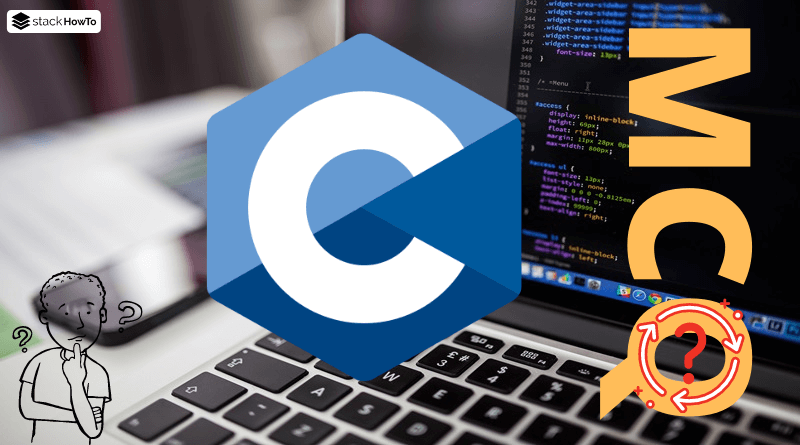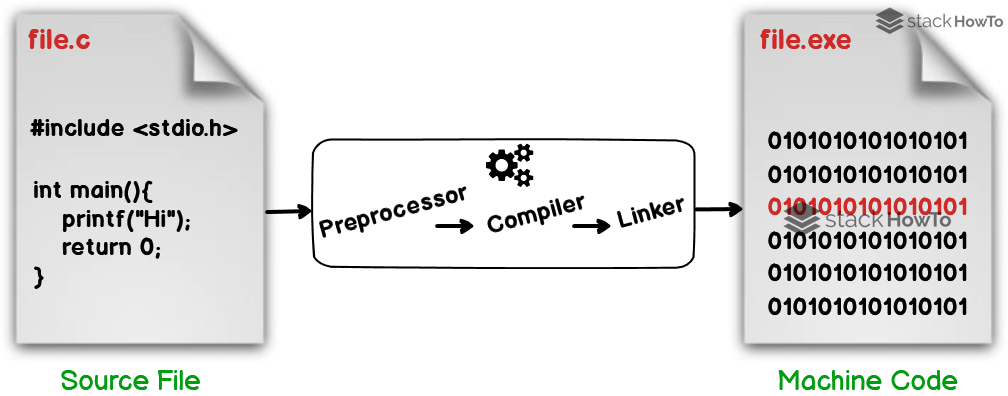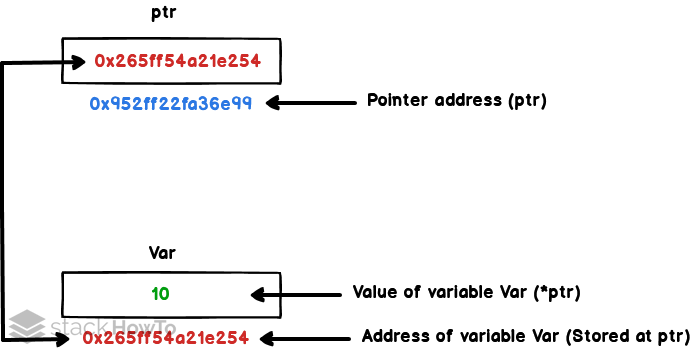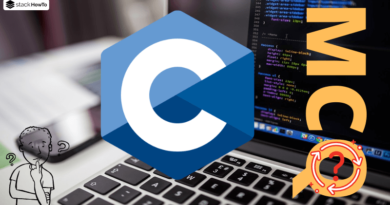100 Multiple Choice Questions In C Programming – Part 7
This collection of 100 Multiple Choice Questions and Answers (MCQs) In C Programming : Quizzes & Practice Tests with Answer focuses on “C Programming”.
1. Which of these variable types matches a pointer?
A int
B float *
C long
D char
2. What is the output of the following C program?
#include <stdio.h>
void main()
{
float a = 0.2;
printf("%d, ", a);
printf("%f", a);
}
A 0, 0.999999
B 0, 0.200000
C Junk value, 0.200000
D 0.200000, junk value
3. In which order does the compilation occur?
A Preprocessor – Compiler – Linker
B Compiler – Linker – Preprocessor
C Linker – Preprocessor – Compiler
D Preprocessor – Linker – Compiler
4. What is the output of the following C program?
#include <stdio.h>
void main()
{
double a = 14728749.22;
int b = a;
printf("%d\n", b);
printf("%lf\n", b);
}
A 1472874, 0.000000
B 1472874, 1472874.0
C 14728749, 14728749.22
D 0, 0.0
5. What is the output of the following C program?
#include <stdio.h>
void main()
{
int a = 97;
char b = a;
printf("%c\n", b);
}
A 97
B b
C a
D Depends on compiler
6. When a double is converted to a float, its value is _____?
A Rounded
B Truncated
C Depends on compiler
D Depends on the standard
7. What does the following code give: &A ?
A The address of the variable A
B The value of the variable A
C The value of the variable to which A points
D None of the above
8. What is the output of the following C program?
#include <stdio.h>
int main()
{
int i = 15;
char c = -15;
if (i < c)
printf("15 < -15\n");
else
printf("15 > -15\n");
}
A 15 < -15
B 15 > -15
C Depends on compiler
D Depends on the standard
9. What does the following code give: *A ?
A The address of the variable A
B The value of the variable A
C The value of the variable to which A points
D None of the above
10. What is the output of the following C program?
#include <stdio.h>
void main()
{
int x = 1, y = 0, z = 5;
int a = x && y || z++;
printf("%d", z);
}
A 0
B 5
C 6
D Other





